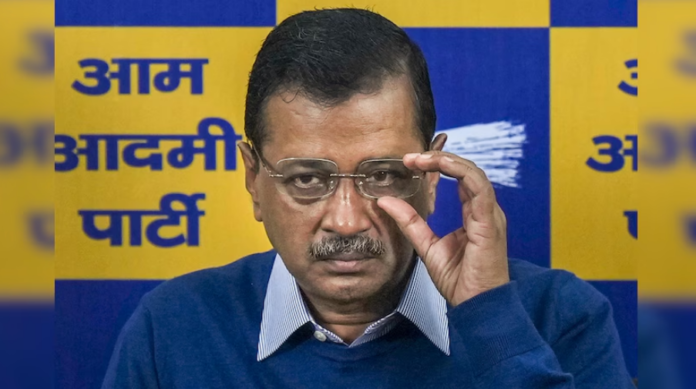In yet another blow to Arvind Kejriwal, the Delhi Chief Minister, already grappling with legal battles and a crushing electoral defeat, a court in the national capital has directed the police to register a First Information Report (FIR) against him and other members of the Aam Aadmi Party (AAP) for allegedly misusing public funds for personal and political gains. The case, which dates back to 2019, revolves around accusations that Kejriwal and his party colleagues misused public money to fund large-scale publicity campaigns through hoardings.
The Rouse Avenue Court’s order is a significant development, especially given the AAP’s track record of repeatedly facing such allegations during its time in power. The petition, seeking legal action against Kejriwal and two AAP leaders, Gulab Singh and Nikita Sharma, was initially dismissed by a lower court. However, this latest ruling requires the Delhi Police to register an FIR and submit a compliance report by March 18, adding fresh momentum to the controversy surrounding the party’s financial practices.
The charges against AAP are not new. The BJP has long accused Kejriwal and his party of diverting public funds for their own political promotion. As recently as January 2024, the BJP alleged that the AAP had spent more on publicizing government schemes than what was allocated for them. For example, while Rs 54 crore was earmarked for the Business Blasters scheme, Rs 80 crore was allegedly spent on advertising it. Similarly, the Desh Ke Mentor scheme, which had an allocation of Rs 1.9 crore, reportedly saw Rs 27.9 crore spent on its promotion. The figures for the Stubble Management scheme were equally contentious, with Rs 77 lakh allotted and Rs 28 crore spent on publicity. These accusations, if true, would paint a troubling picture of the AAP’s financial transparency.
While the AAP has firmly denied these charges, calling them politically motivated, the allegations have caused significant reputational damage. In a separate case, the Directorate of Information and Publicity had already demanded that the party reimburse over Rs 163 crore, citing the misuse of public funds for political advertisements. This constant shadow of financial impropriety has put Kejriwal on the defensive, especially as his political fortunes have taken a hit in recent months.
Adding to the pressure, the BJP has also targeted Kejriwal for the lavish renovation of his official residence, dubbing it the “Sheeshmahal.” The expenditure on upgrading the CM’s bungalow has sparked outrage, with the opposition accusing Kejriwal of indulging in extravagant personal comforts at taxpayer expense. While the AAP insists the renovations were necessary, citing the 1942 vintage of the residence and the Public Works Department’s recommendation, the optics of such spending have certainly not helped Kejriwal’s image, particularly in the wake of his party’s losses in the 2020 Delhi Assembly elections.
The AAP’s losses in the February 2020 Delhi elections were stark. From a commanding majority of 60 out of 70 seats in 2015, the party was reduced to just 22 seats, while the BJP, buoyed by a strong anti-AAP sentiment, surged to 48 seats. The defeat was made all the more personal for Kejriwal when he lost his own New Delhi constituency to BJP’s Parvesh Verma, who triumphed by over 4,000 votes. This loss, coupled with the ongoing legal troubles, has left the Delhi CM in a precarious position.
If the political situation wasn’t already tense, in January 2024, Kejriwal’s troubles deepened with the Home Ministry granting the Enforcement Directorate (ED) sanction to prosecute him and former Deputy CM Manish Sisodia in the alleged Delhi liquor policy scam under the Prevention of Money Laundering Act. This move has brought fresh scrutiny on the AAP and its leadership, making it difficult for Kejriwal to shake off the mounting pressure from both political opponents and law enforcement agencies.
Kejriwal’s difficulties are emblematic of the deepening polarization within Indian politics, where accusations of corruption and financial mismanagement have become a potent tool for the opposition. The AAP, which initially surged to power with its promises of clean governance and anti-corruption measures, now finds itself entangled in a web of scandals that threaten to undermine its credibility.
For Kejriwal, the challenges are only multiplying. The latest court order for an FIR marks a new chapter in a long-running battle to protect his political legacy and the reputation of his party. As the legal proceedings unfold and public scrutiny intensifies, the AAP’s struggle to stay afloat politically will likely be shaped by its ability to weather these legal storms and defend its image in the face of mounting allegations. Whether Kejriwal can emerge unscathed from this series of setbacks remains to be seen, but one thing is clear: his political journey is facing one of its toughest tests yet.



